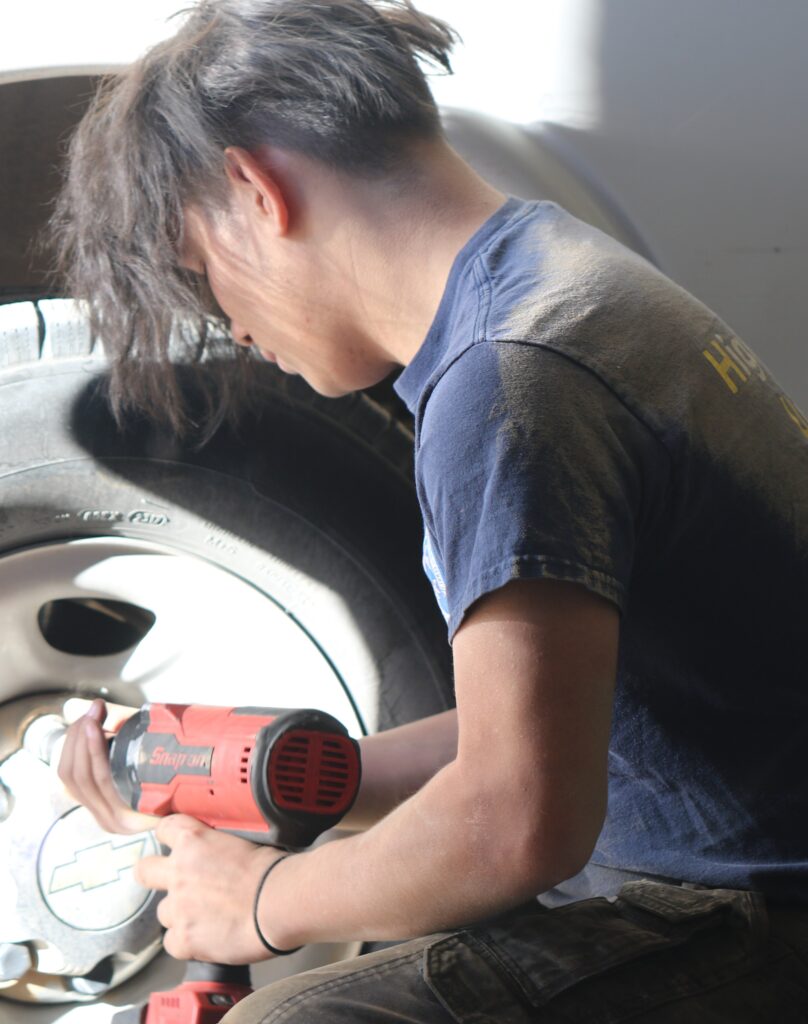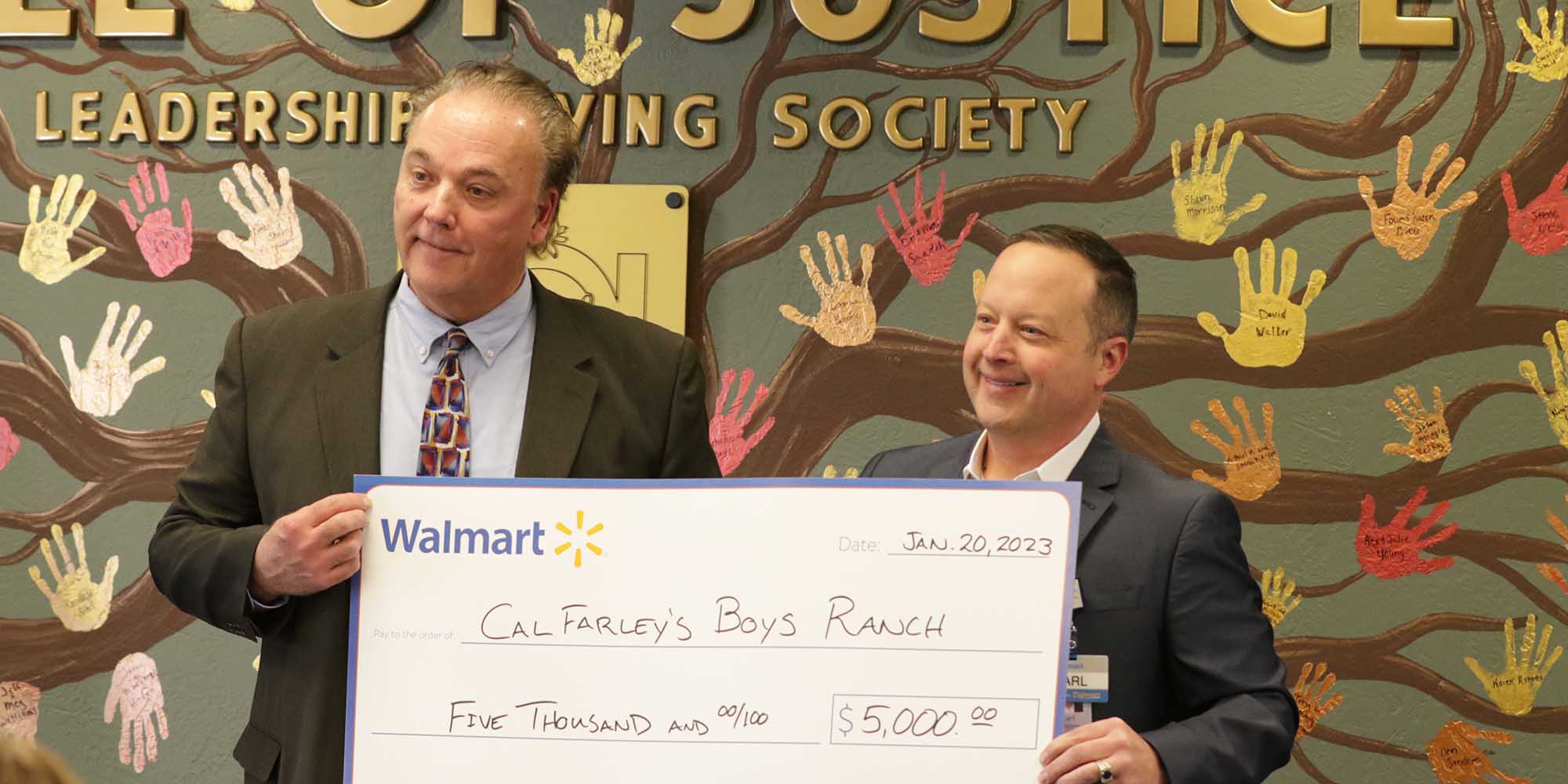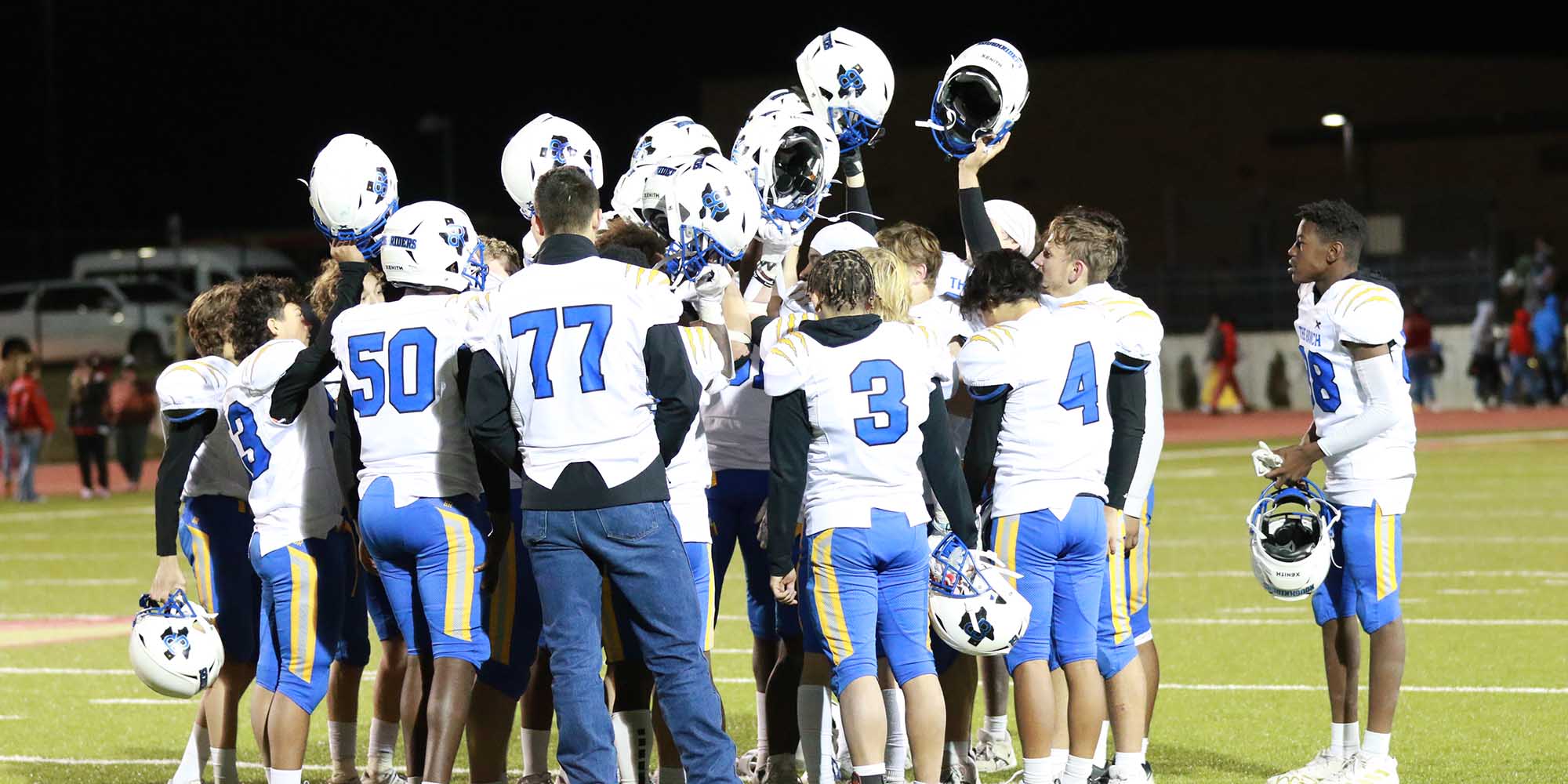Youth learn life lessons, trade skills and work ethics through Experiential Learning Programs.
One summer day, Nathan stood in front of Keely Miller’s desk and spread out his hands. They were covered with oil and engine grease.
“And he said, ‘Ma’am! Look at this! I love my ELP,’” Miller remembered. “He was so happy about how much fun he was having in our transportation department. He was proud of the evidence of his hands-on learning about auto mechanics.”
ELPs, or Experiential Learning Programs, are opportunities for children at Boys Ranch to sample different career paths, said Miller, who organizes the ELPs.
“Like many students, Nathan had tried a few of these after-school activities before he found auto mechanics,” Miller said. “His passion for it was evident.”

In ELPs, adolescents learn skills from ELP mentors who know different trades and are willing to share their knowledge. Todd Heymer, manager of transportation services, runs the department that services all Boys Ranch vehicles to keep them running smoothly and safely.
He also supervises the ELP that includes Nathan.
“The kids do everything we do,” Heymer said. “Whatever we’re working on at the time, whether it’s changing tires or alternators or starters or rebuilding an engine or changing oil or servicing a vehicle. They jump in and we show them the ropes.”
Mentors aren’t coaches, teachers, caseworkers, houseparents or counselors. The relationship that mentors have with the students can be more relaxed because it is focused on accomplishing tasks, Miller said.
“Children learn work behavior from the other adults in the department,” she said. “There’s no lecturing – just group participation in getting specific projects done.”

The Irrigation Experiential Learning Program Leads to Life Lessons
Rick Kinsey has been working at Boys Ranch for 27 years, mostly in the general agriculture area.
He installs irrigation systems, and students in his ELP transport water to dry areas, mow lawns, move sprinklers, plant trees, build terraces and help out with anything else that might be needed by another department.
Modeling teamwork is important, he said.
“Whatever special projects are asked of us, we’ll do,” Kinsey said. “It opens up a conversation to teach the kids that they should step out and help somebody. It’s a life lesson. No matter what’s going on in your life, there’s time to stop and help somebody. Just another way to teach, and that’s why we’re here.”
Through the irrigation ELP, students learn hard work and punctuality, he said, and students who have been with Kinsey have gone on to become lawyers, welders and teachers. Kinsey takes the “mentor” part of his job seriously.
“It’s important to get tasks done, but the kids come first,” Kinsey said. “People have entrusted us with their kids, and the kids are first.”
If he needs to slow down to explain a job several times until a student understands it, he’ll do so.
“Students learn valuable work ethic from seeing it demonstrated by the hardworking people on staff here at Boys Ranch,” Miller said. “The students are also learning skills that they can turn into vocations.”

The Welding Experiential Learning Program Leads to Job Skills
Craig Wright teaches welding classes through Boys Ranch High School, and he also mentors an ELP that focuses on welding and general construction. Construction and welding skills are in high demand, Wright pointed out.
“We aren’t necessarily trying to create auto mechanics or carpenters,” Miller said. “We are trying to create meaningful work experiences that help youth see future career possibilities.”
Students leave Boys Ranch ready to learn more from community colleges or specialty trade schools.
“I try to take my students toward a first welding test, then if they pass that, they can get a certification and go to a school,” Wright said. “One of the things I’ve pushed hardest is electrician work. I tell my kids if they don’t want to go to college, electricians get paid to learn and paid to go to school.
“Once they are finished with their training, they get nearly the same pay as a doctor and can set their own hours.”
Students can get entry-level carpentry jobs or internships with electricians through unions or Amarillo College, he said.
“Right now, everybody needs an electrician,” Wright said. “There will always be a need for a welder. If you want to learn how to weld, learn how to weld. There will always be a need for those two skills.”
Heymer’s auto mechanics ELP also allows students to work toward a career, especially when they’re eager to learn, like his current students are.
“They could go to a shop and interview for any mechanic, entry-level mechanic position,” Heymer said. “If they wanted to further their education in auto mechanics, it would give them a real big boost and head start on doing that.”
Even those who never get paid to work on automobiles will be able to understand their own autos better, Heymer pointed out. And if the students want to go to college, they are qualified to work at a local oil change or tire repair shop to make money for college expenses, he said.
“For most adults, work will make up a big portion of their lives,” Miller said. “Experiential Learning Programs help children find good, honest jobs that will fulfill them so they can be happy, productive adults.













